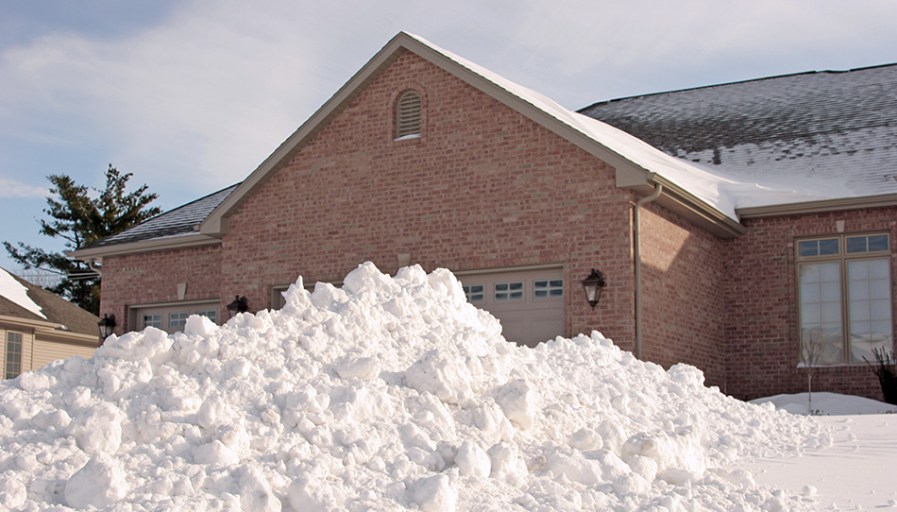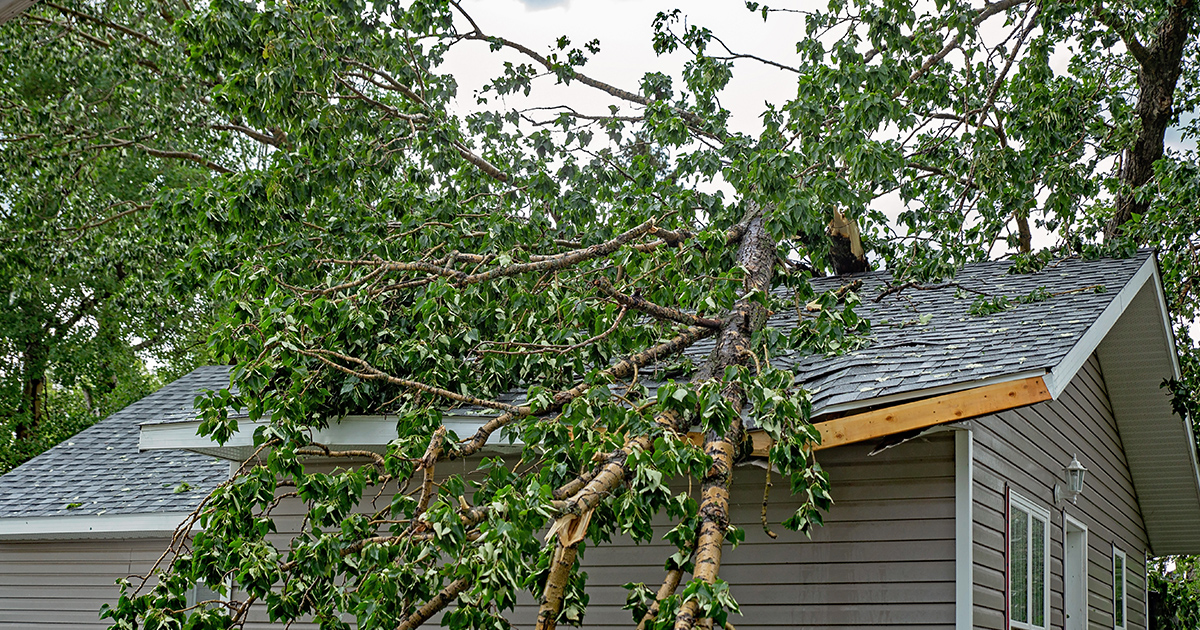Looking for engaging content for your social media platforms? Explore the REALTOR.ca Living Room blog for inspiring blogs like the one below.
Share it with your clients and make sure to follow REALTOR.ca on social media for more updates.
You consider price, location, commute time, and school districts when house hunting, but have you thought about adding climate and weather-related risks to your list? Heat waves, severe flooding, violent hailstorms, tornadoes, rising sea levels, raging wildfires—these extreme weather events all present major challenges for Canadians, including those in the market to buy a home.
Changing climate conditions mean home buyers should be asking lots of questions and thinking about how weather could impact their property. For example, if your dream house is in a neighbourhood susceptible to floods, how much will you have to dole out for added insurance? Will excessive amounts of snow make commuting a huge pain, or even damage your roof? Will your area’s rising temperatures impact how much you pay for air conditioning? Here’s what you need to know.

The cost of extreme weather hits the real estate market—and your wallet
Major weather events seem to be a regular occurrence these days. With an increasing number of climate-related storms, fires, and floods comes a surge in insurance claims, which have more than doubled since 2005, says Kathryn Bakos, managing director of finance and resilience at the Intact Centre on Climate Adaptation at the University of Waterloo. Bakos conducts research on the impact of flooding on Canada’s residential real estate sector and mortgage markets.
“We’re seeing extreme weather events growing, and we track the catastrophic loss claims data— any event that triggers $25 million or more of insured losses, which is what your insurance company pays out—from flood, wildfire, hailstorm on a year-to-year basis,” says Bakos.
From 1983 to 2008, insurable losses ranged from $250 to $450 million per year. Today, they’re up to $2 billion annually. And that’s just what insurance companies pay out. So, if the average flooded basement costs $43,000 to repair, there’s a cap on what insurance covers—usually $10,000 to $20,000. The rest comes out of the homeowner’s pocket.
Flooding and wildfires are the costliest extreme weather events in Canada, but Bakos says that in Calgary and Edmonton, hailstorms cause most damage, while East Coast residents deal with severe lightning storms and hurricanes.
Bakos’ team recently performed the first quantitative analysis of the impact flooding has on the Canadian housing market, and the numbers were alarming.
“We determined that six months after a flood event, homes located in flooded communities experienced an 8.2% reduction in the sold price of their home compared to their non-flooded counterparts,” she says.
With the average Canadian home worth roughly $650,000, that would equate to about a $53,000 reduction in value. And roughly 1.5 million Canadian homes—about 10% of the housing market—are considered uninsurable for flood risk, according to the Insurance Bureau of Canada, she adds.

Do your due diligence when shopping for or protecting your home
The federal government plans to develop the Climate Adaptation Home Rating Program, a portal Canadian home buyers could check to assess the risk associated with their property. But until then, Bakos recommends calling your insurance broker or provider and asking about any major flood events or claims for the home you’re interested in over the past five years. Ask your REALTOR® if the property falls on a floodplain.
“Across Canada, flood risk maps are 20 to 25 years out of date, and it’s up to municipalities across Canada to maintain them. In Ontario, we’re lucky because we have conservation authorities and it’s their job to maintain and update flood risk mapping,” explains Bakos.
When buying her home in Burlington, Ontario, which experienced a major flood event in 2014, Bakos checked if the driveway sloped away from the home to help prevent water from seeping in. Bakos also suggests verifying if the home sits higher up on the street, and whether it has extended downspouts to direct rainwater away from the house.
“If your basement windows are at ground level, are there window well coverings? Is there a sump pump and backwater valves in the basement? These all stop water from coming in,” she adds.
The Intact Centre offers free resources on how to protect your home from climate events, such as cleaning out your eavestroughs and sweeping leaves away from sewer grates to prevent flooding, and installing hail-resistant roofing and siding material to guard against hail damage.
“For wind, you can install inexpensive hurricane straps and clips, and impact-resistant window shutters,” says Bakos. “Secure loose patio furniture and clean up dead tree branches so they won’t break off and fall onto your home or power lines.”
Other preventive tips for homeowners:
Wildfire zones
- Look for homes with ample spatial separation between them.
- Reach out to local fire departments to ask about their emergency planning.
- Look for homes with Class A roofing/metal roofs and non-combustible siding.
- Standard homeowner insurance policies in Canada cover damage caused by fires, and also provide coverage to help with the cost of mass evacuations, according to the Insurance Bureau of Canada (IBC).
- Keep combustible materials at least 10 metres away from your home.
- Prune trees to create a 2 m clearance from the ground to the lowest tree branches.
Severe winter storms
- Arrange for snow or ice removal from roofs and balconies to reduce the weight and the risk.
- Keep your home stocked with the essentials in the event of a power outage or road closures due to snow or ice.
- Ensure your walls are properly insulated, your weather stripping is in good shape, and consider storm windows.
- Install snow fences in rural areas to reduce drifting snow on roads and paths.
Tornadoes and hurricanes
- Consider using class 4 impact resistant roofing when completing upgrades or repairs.
- Most home insurance policies cover windstorm or tornado damage such as losses caused by flying debris and falling branches or trees, and losses to your home and contents if water enters through openings caused by wind or hail.
- Home insurance policies generally do not cover damage caused by coastal flooding and storm surges.
- Be aware of large or aging trees on a property that could be at risk of falling or breakage due to strong winds.
Knowing your climate risk helps prepare you for future costs. Your REALTOR® can provide insights on the neighbourhood and what it usually experiences, so tap into their expert insight.




